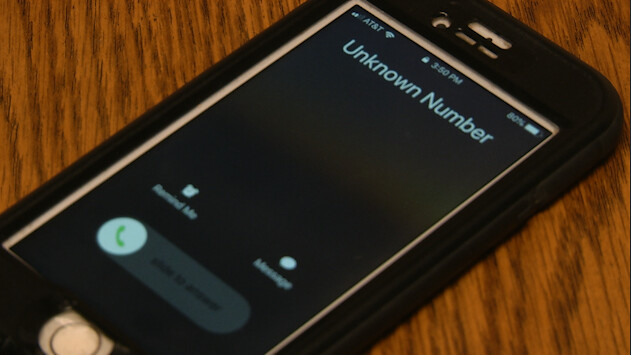New Text Messaging Scams on the Rise
- Published: 7/19/2018
- Comments
LANSING - With around 20 billion text messages being sent in America everyday, "SMiShing" or SMS fishing is becoming a new trend for scammers looking to hack your personal information.
Michigan Attorney General Bill Schuette, announced the release of his Consumer Protection team's consumer alert. SMiShing is similar to email phishing scams. However, these scams go straight to your text messages appearing to be from a trusted source.
The goal of these scammers who are sending out false text messages, is to get consumers to respond with personal information or to click on links that install malware on mobile devices.
A common example of a SMiShing text that has been appearing is a text warning people about a problem with one of their accounts and asking them to respond to the text with personal information to correct it. Other texts include offers too good to be true such as free gifts and trips.
Schuette's alert says it's important not to respond to the text or click on links that may be included in the message. The best thing to do is delete the message from the device it was received on.
An important thing to note is that neither the State of Michigan nor the federal government will contact you through a text message. In fact, federal law makes it illegal to send commercial text messages to a mobile device without the recipients permission even if you have not put your name on a do not contact list.
To prevent SMiShing scams:
-Don't respond to any suspicious numbers. Instead, report it, delete it, and block the number
-Don't share your phone number with strangers or random websites and organizations
-Read the fine print of user agreements before downloading apps or other services that may use your phone number
-Never follow a text's instructions to push a designated key to opt out of future messages.
If you are a mobile subscriber with AT&T, T-Mobile, Verizon or Bell you can report possible SMiShing scams by copying the text and forwarding it to 7726 for free. If you are not able to use this option, you can report suspicious texts to your service provider and the Federal Communications Commission.
You can also report a scam, file a complaint, or get additional information by contacting the Michigan Department of Attorney General Consumer Protection Division at 517.373.1140.
Additional Resources
More In STATE
MSU and Merit Receive $10.5M Grant to Enable Statewide Improved Internet
6/30/2022MICHIGAN - Merit Network and Michigan State University are no... [More]
Tips on How You Can Prepare for Rising Temperatures
6/14/2022LANSING - The heat index is expected to exceed 100 degrees t... [More]
New Standards Bill introduced for Dogs Living Outside
3/4/2022MERIDIAN TOWNSHIP - For a year now Bill HB 4784-86 has been sitting at... [More]


 Spanish
Spanish Chinese (Simplified)
Chinese (Simplified) Korean
Korean French
French German
German Hindi
Hindi Urdu
Urdu Japenese
Japenese Arabic
Arabic Russian
Russian Farsi
Farsi
